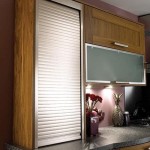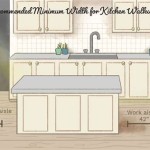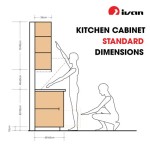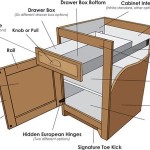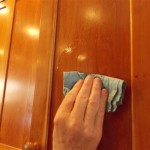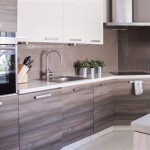Kitchen Cabinet Toe Kick Options: A Guide to Functionality and Style
Toe kicks, the often unseen space beneath kitchen cabinets, play a crucial role in both the functionality and aesthetics of the room. Not just a design element, toe kicks provide stability for base cabinets, offer a concealed space for electrical wiring, and affect the overall feel of your kitchen. Understanding the available toe kick options allows you to choose the best fit for your unique needs and design preferences.
Traditional Toe Kicks: The Classic Choice
Traditional toe kicks are the most common and straightforward option. They are typically 4” high and made from the same material as the base cabinets, often wood or laminate. These toe kicks provide a solid base for cabinets, offering stability and preventing them from tilting or shifting. They are also readily accessible for hiding electrical wiring or plumbing, making them practical choices for kitchens with complex plumbing systems.
The classic look of traditional toe kicks blends seamlessly with most kitchen designs, making them suitable for a variety of styles. They can be painted to match the cabinets or stained to complement the wood finish, creating a cohesive and polished appearance. However, their solid construction can present a challenge for those with mobility issues, as the 4” height can be a tripping hazard.
Open Toe Kicks: A Modern Minimalist Style
Open toe kicks offer a modern, minimalist aesthetic, providing a clean, airy look to the kitchen. Instead of a solid panel, open toe kicks consist of a small space or cutout below the cabinets, typically measuring 2-3 inches in height. This space offers better airflow underneath the cabinets, preventing dust buildup and reducing the chance of moisture trapped in hard-to-reach areas.
Open toe kicks create a sense of openness and spaciousness, ideal for smaller kitchens where visual clutter can be a concern. However, it’s important to consider the potential for dust accumulating below the cabinets, which may require more frequent cleaning. Open toe kicks also offer less concealment for wiring, making them a less suitable option for kitchens with complex electrical configurations.
Adjustable Toe Kicks: Adaptable to Your Needs
Adjustable toe kicks offer flexibility and convenience, allowing you to adjust the height of your cabinets to suit your individual needs. Available in various materials, including wood, metal, and plastic, adjustable toe kicks come with a mechanism that allows you to raise or lower the cabinet height by a few inches. This functionality is particularly helpful for individuals with varying heights, making kitchens more comfortable and accessible for everyone.
Adjustable toe kicks are also useful in kitchens with uneven floors, allowing for better cabinet leveling. However, they may be more expensive than traditional toe kicks and require some initial setup during installation. Additionally, the adjustable mechanism could potentially become a point of failure over time, requiring maintenance or replacement.
Consider the Following When Choosing Toe Kicks
When selecting the right toe kick option for your kitchen, consider the following factors:
-
Accessibility:
For those with mobility limitations, open toe kicks or adjustable toe kicks with lower heights can minimize tripping hazards. -
Aesthetics:
Traditional toe kicks offer a classic, seamless look, while open toe kicks provide a modern minimalist feel. -
Functionality:
Consider the ease of concealment for wiring and plumbing, as open toe kicks offer less hiding space than solid toe kicks. -
Budget:
Adjustable toe kicks may be more expensive than traditional options, while open toe kicks can be budget-friendly. -
Maintenance:
Open toe kicks may require more frequent cleaning due to dust accumulation, while solid toe kicks offer less maintenance.
The best toe kick option for your kitchen depends on individual needs and preferences. By carefully considering the different options and their pros and cons, you can make an informed decision that enhances both the functionality and aesthetics of your kitchen.

How To Add Decorative Toe Kicks Your Kitchen Cabinets Jenna Sue Design

Hampton Bay Designer Series 96x4 25x0 25 In Toe Kick White Atk Wh The Home Depot

Do You Need Toe Kick Trim Or Molding In Your Kitchen

Hampton Bay Designer Series 96x4 25x0 25 In Toe Kick Gray Atk Gr The Home Depot

Adding Toe Kicks A Window Sill Young House Love

Why You Should Install Toe Kick Drawers Purewow

Diy Kitchen Update Cabinet Trim Tutorial Domestic

Don T Forget The Toe Kick Kristi Murphy Diy Blog Kitchen Cabinets Remodel

Kitchen Cabinets Toe Kick Brown Bathroom Decor Floating Vanities

Adding Toe Kicks A Window Sill Young House Love
Related Posts


